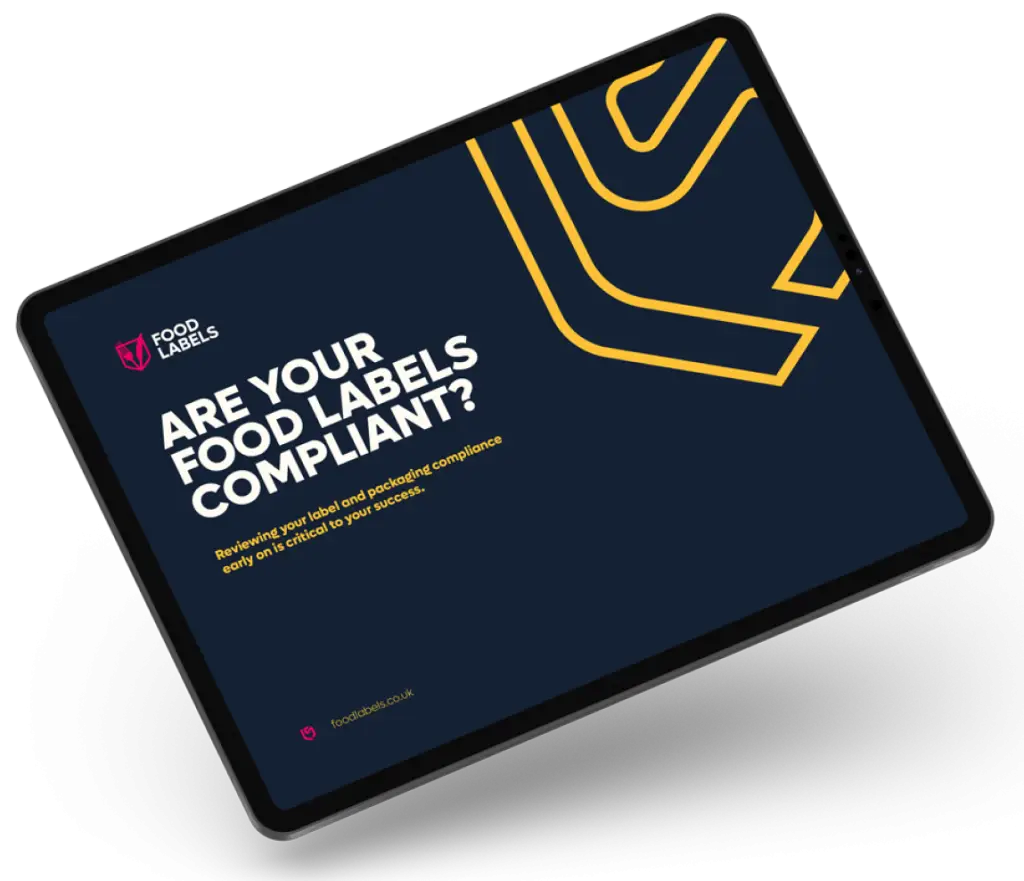The European Commission has registered two new European Citizens’ Initiatives related to animal farms and labelling of food. The European Citizens’ Initiatives are “Stop Cruelty Stop Slaughter” and “Stop Fake Food: Origin on Label.” A European Citizens’ Initiative allows citizens to invite the EU Commission to propose related legal acts.
Italian organisers of the “Stop Cruelty Stop Slaughter” initiative want the EU Commission to introduce incentives for producing plant proteins, including plant-based milk and egg substitutes, as well as cultivated meat. They call for a reduction in the number of farm animals and to progressively close all animal farms.
Those behind the “Stop Fake Food: Origin on Label” initiative call for the EU Commission to propose measures that ensure European consumers have access to transparent information about the food they buy and that their expectations regarding food quality and sustainability are met.
The EU Commission has not yet analysed the proposals. A decision to register them does not influence the action it would take, if any, in case the initiatives obtain the support of at least one million EU citizens. For an initiative to be examined by the EU Commission, it must collect at least one million signatures and obtain a certain threshold of backing in at least seven EU countries. More than half of the 116 registered topics have not met this target. Organisers now have six months to open signature collection. If an initiative receives at least one million statements of support within one year, the EU Commission will have to react.
Stop Cruelty Stop Slaughter
Those responsible for the “Stop Cruelty Stop Slaughter” initiative said factory farming and slaughterhouses pose a constant threat to public health and hygiene problems such as Salmonella. They want plans to gradually reduce the number of farm animals at a rate of 50 percent of the number of animals each year, and to progressively close all animal farms. They want the action to begin with factory farms, followed by free-range farms, and slaughterhouses.
The organisers said closing such sites and using EU funding to incentivise the conversion of existing animal husbandry activities into those involving plant proteins or cultivated proteins would be a valuable tool to prevent new diseases. They also mention benefits for animal welfare, the environment, and antibiotic resistance.
Objectives
Factory farming and slaughterhouses are at odds with the 1978 Universal Declaration of Animal Rights and the Treaty of Lisbon, which grant all animals the same rights to existence and define them as sentient beings. Factory farming and slaughterhouses pose a constant threat to public health in the form of the spread of ever new pandemics and health and hygiene problems (salmonella, avian influenza, etc.).
They call for:
1) incentives for the production of plant proteins, including plant-based milk and egg substitutes, and for the production of cultivated meat;
2) plans to gradually reduce the number of farm animals at a rate of 50% of the number of farm animals each year, and to progressively close all animal farms.
‘All animals are born with an equal claim on life and the same rights to existence’, according to the Universal Declaration of Animal Rights signed in Paris on 15 October 1978. Similarly, Article 13 of the Treaty of Lisbon recognises animals as ‘sentient beings’ and provides that ‘the Union and the Member States shall … pay full regard to the welfare requirements of animals’.
The reality, however, is quite different. Animal exploitation is becoming increasingly common in the EU Member States. For this reason, in line with the 1978 Universal Declaration of Animal Rights and the Treaty of Lisbon, we are calling for recognition of the fact that it is an aberration to keep animals for the sole purpose of fattening and slaughtering them, and that it is an aberration to keep animals for the sole purpose of enriching those who keep them (animals being reared and slaughtered for the sale of their meat, animals being exploited and slaughtered for their wool, milk or eggs, chicks being shredded alive for the mere fact of being male, etc.).
They are also calling for the progressive closure of animal farms and slaughterhouses by shifting EU subsidies from animal husbandry to ethical production. This would incentivise production of plant proteins, including plant-based milk and egg substitutes, and the production of cultivated meat to be fed mainly to pets and companion animals.
There are also public health arguments for phasing out the practice of rearing animals to be fattened, exploited and killed in slaughterhouses and replacing it with ‘ethical’ and ‘clean’ alternatives. These farms are considered, including by scientific and environmental impact studies, to be genuine ‘ticking time bombs’, often due to the presence of so many sentient beings of the same species being kept in small spaces one on top of the other.
The farms also increase the risk of future spillover events and the emergence and spread of future pandemics. Poultry farms in particular carry the highest risk of the emergence of influenza pandemics affecting animals and people (there have been cases of cows contracting avian influenza H5N1; one case of avian influenza has also been identified in a dairy farm worker in Michigan, USA).
Stop Fake Food: Origin on Label
Organisers of the “Stop Fake Food: Origin on Label” initiative want the origin of all products entering the EU to be clearly indicated and for these items to meet the environmental, health and labour standards applicable in Europe. Having tighter origin requirements would help to prevent fraud, protect public health, and guarantee consumers’ right to information. Reference to the country of origin or place of provenance would avoid general references such as non-EU.
They ask for an increase in border checks on food at European and national borders to stop scams that harm farmers and consumers and to prohibit imports of food processed using substances and methods banned in Europe. “Unclear and perhaps intentionally ambiguous indications of origin provide opportunities for misleading geographical identity, false product identity and misrepresentation of products, and facilitate counterfeiting,” according to the initiative.
The group calls for European consumers to have access to transparent information about the food they buy and for their expectations in terms of high quality and sustainability standards to be met. They also call for the origin of all products entering the common market to be clearly and explicitly indicated and for those products to meet the environmental, health and labour standards applicable in the internal market, in order to protect consumer health and the planet.
1) The revision of the Union Customs Code’s last processing criterion (Article 60(2) of Regulation (EU) No 952/2013) and of the place of provenance, as established under the Regulation on the provision of food information to consumers (Article 2(2)(g) of Regulation (EU) No 1169/2011).
2) Compliance with the principle of reciprocity, to prohibit imports of food processed using substances and methods banned in Europe (Articles 168(1) and (5), 169(1), 114(3) and 216-219 TFEU).
3) An increase in border checks on food entering at European and national borders to stop the food scams that harm farmers and consumers (Article 43 et seq. of Regulation (EU) 2017/625).
4) The extension of the indication of origin requirement to all food products in order to prevent fraud, protect public health and guarantee consumers’ right to information. The reference to the country of origin or place of provenance must be displayed to avoid further confusing consumers with the use of general geographical references (EU, NON-EU, or EU and NON-EU) (Article 26(2) and (3) of Regulation (EU) No 1169/2011 and Article 2 of Regulation (EU) 2018/775).
More specifically:
1) According to Article 60(2) of Regulation (EU) No 952/2013 (Union Customs Code), ‘[g]oods the production of which involves more than one country or territory shall be deemed to originate in the country or territory where they underwent their last, substantial, economically-justified processing or working’. This means that a product’s ‘origin’ as indicated on the food label is usually the country where the processing establishment is located, unless there is an explicit obligation also to indicate the provenance of the agricultural product used in processing (as is the case in Italy for milk, cheese, pasta, rice, processed tomatoes and processed pork, applicable to establishments operating within Italy’s national borders). The ambiguity becomes clear when one considers the definition of ‘place of provenance’ (Article 2(2)(g) of Regulation (EU) No 1169/2011): ‘any place where a food is indicated to come from, and that is not the “country of origin” as determined in accordance with Articles 23 to 26 of Regulation (EEC) No 2913/92’ (replaced by Article 60(2) of Regulation (EU) No 952/2013). Unclear and perhaps intentionally ambiguous indications of origin provide opportunities for phenomena such as misleading geographical identity, false product identity and misrepresentation of products, and facilitate counterfeiting. It is thus necessary to establish, transparently and unambiguously, that the origin of a food product corresponds to the country of provenance of the agricultural product (where it was grown, reared or fished) and the place where it was processed, both of which (if different) must be indicated on the label or in other forms of information for consumers (menus, signs, etc.).
2) Under Articles 168, 169 and 114 of the Treaty on the Functioning of the European Union (TFEU), Union action, which complements national policies, includes monitoring, early warning of and combating serious cross-border threats to health. To guarantee public health and consumer protection, it is necessary to apply the principle of reciprocity in commercial relations with third countries, to make sure that all products entering the Union meet the environmental, health and labour standards that apply in the internal market, and prohibit imports of food processed using substances and methods banned in Europe. This prohibition must also be reaffirmed in the EU’s international agreements concluded under Articles 216-219 TFEU.
3) The EU is one of the largest free trade areas in the world, with a market of around half a billion users/consumers. Regular official controls on consignments of goods not subject to enhanced measures are organised on the basis of a risk assessment in accordance with Article 43 et seq., par. 3, of Regulation (EU) 2017/625. To curb food scams, which harm farmers and consumers, there is a need to increase the frequency and thoroughness of controls on food and feed imports. Such controls must be effective in preventing risks to public health, protecting consumers’ interests and ensuring fairness in commercial transactions.
4) Article 26(2) of Regulation (EU) No 1169/2011 states, as a general principle of transparency, that indication of the country of origin or place of provenance is mandatory where failure to indicate this might mislead the consumer as to the true country of origin or place of provenance of the food, if the information accompanying the food or the label as a whole would otherwise imply that the food has a different country of origin or place of provenance. In practice, however, indication of origin applies only when provided for under specific sectoral rules; Article 26(3), which lays down the obligation to indicate the origin of the primary ingredient where it differs from the origin indicated for the food, has also been weakened by derogations and the excessive discretion granted to industry under Commission Implementing Regulation (EU) 2018/775. Therefore, to prevent fraud, protect public health and guarantee consumers’ right to information, Regulation (EU) No 1169/2011 must be amended to include an obligation to indicate the provenance of all food products, whether packaged or served in out-of-home catering establishments, i.e. in school canteens, businesses, hospitals and restaurants.














